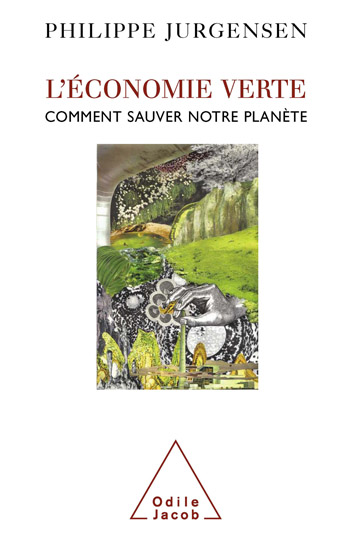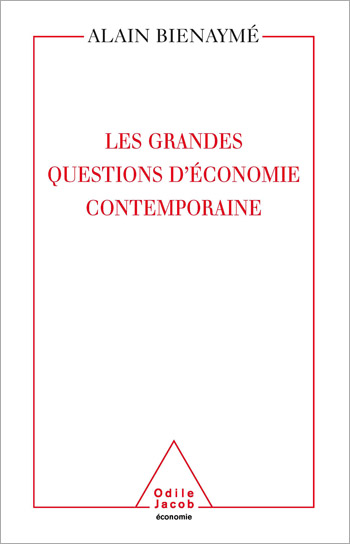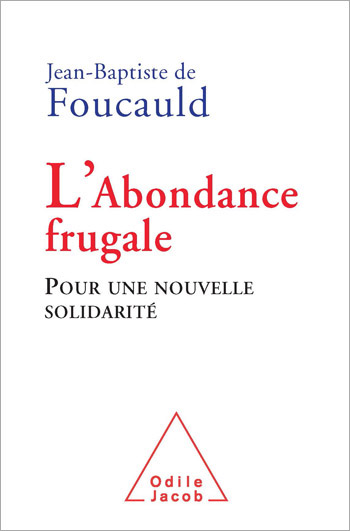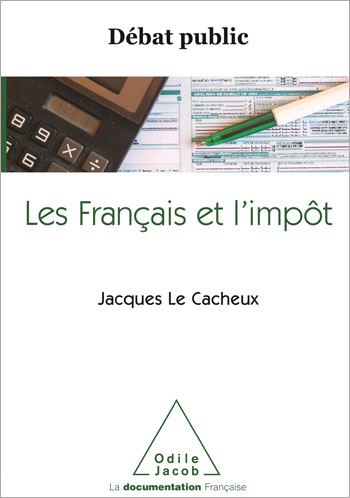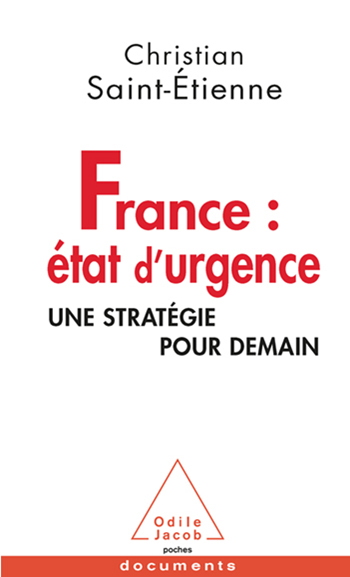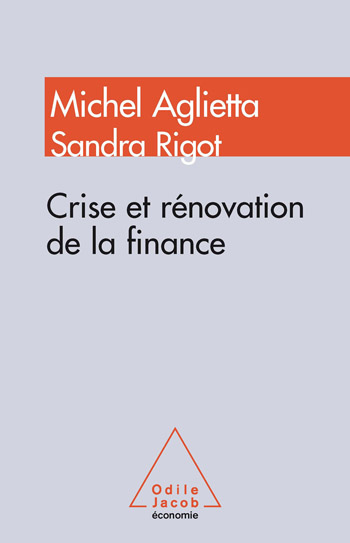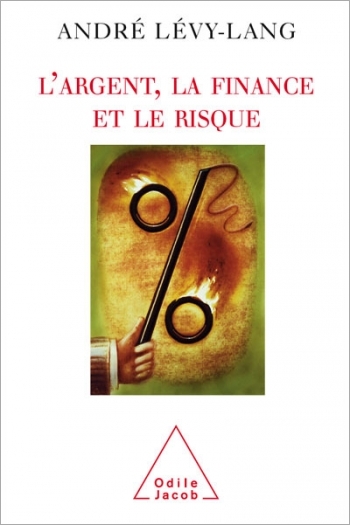Economics and Finance All books
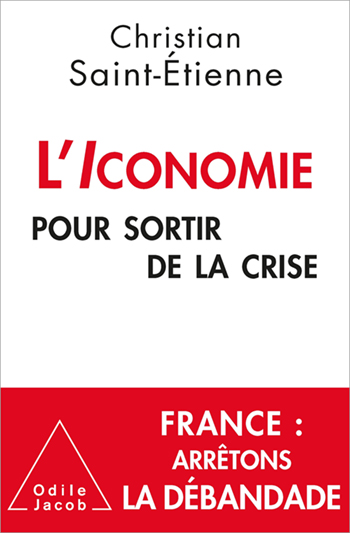
Christian Saint-Étienne
The iConomic Revolution France Faces the Third Industrial Revolution
Following the success of France: Etat d’urgence, a new polemical work on the state of the French economy, by Christian Saint-Etienne
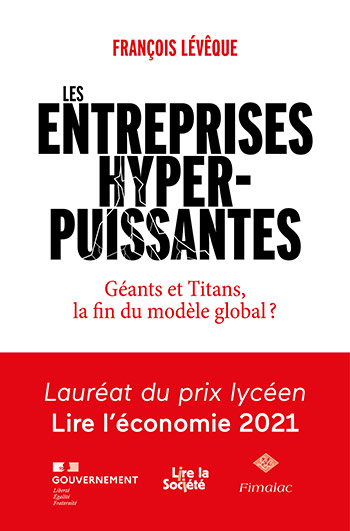
François Lévêque
Hyperpowerful Corporations Giants and Titans, the End of the Global Model
Why governments want to regain the upper hand over globalization
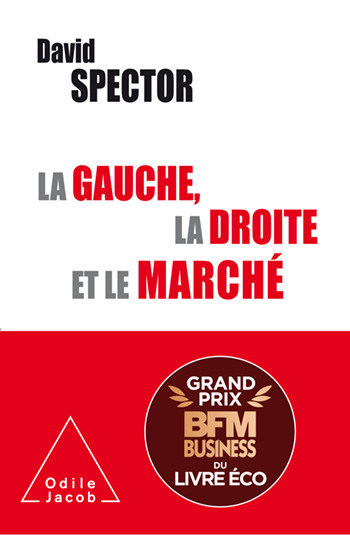
David Spector
History of the Market Concept in France
An original point of view which runs counter to received ideas: the concept of the market is in a blind spot of leftist thinking, or even that of the French intellectual tradition. This book should be part of the debate as it provides historical insight on a crucial point of current disunity within the left and on its future.
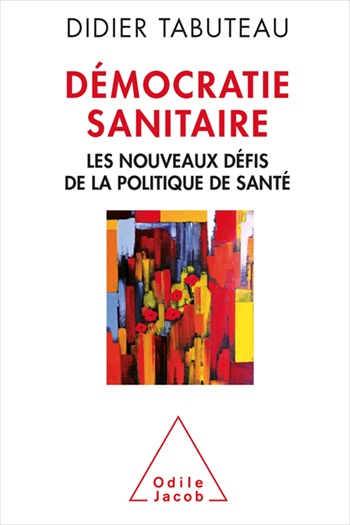
Didier Tabuteau
Health as Political Model
This exemplary X-ray of French healthcare argues for a total overhaul of the system
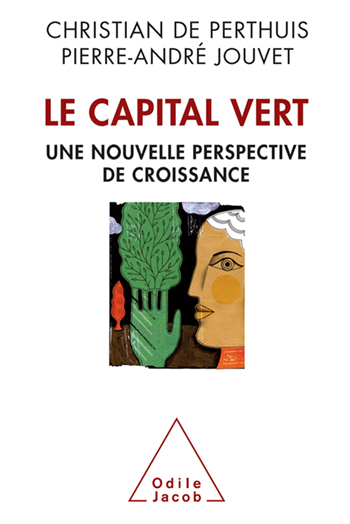
Christian de Perthuis, Pierre-André Jouvet
Green Capital
The indispensable book to understand the green economy and boost economic growth

Christian Blanc
Greater Paris
How to save Paris from turning into a dead city and France into a nation in decline

Alain Trannoy, Étienne Wasmer
The Great Return of Land in Wealth
The French property and land wealth has reached an unheard-of volume of 7000 billion euros, more than three times the national GDP. How can it be taxed to release the burden that weighs on production?

Michel Godet, Jean-Claude Bouly
Good News Territories
The eleven local initiatives described here are eleven uniquely inspiring models for anyone wishing to start a business in France

Michel Godet, Patrick Miliotis
Good News Territories Prize-Winning 2018
The 2018 Grand Prize honoured thirteen winners, whose beautiful, powerful and reproducible stories are told here.

Michel Godet, Alain Lebaube, Philippe Ratte
Good News in France
“Once upon a time, there was a marvellous country called France, famed for its geographic and geologic variety as well as for its rich heritage and the diversity of its cultural traditions...
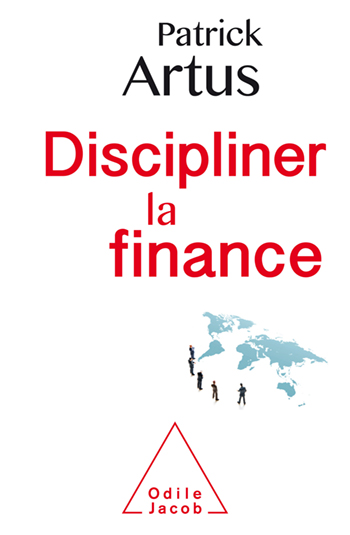
Patrick Artus
Globalization and Finance
Patrick Artus is one of the most brilliant analysts of today’s economy and finance. All his books are best-sellers.
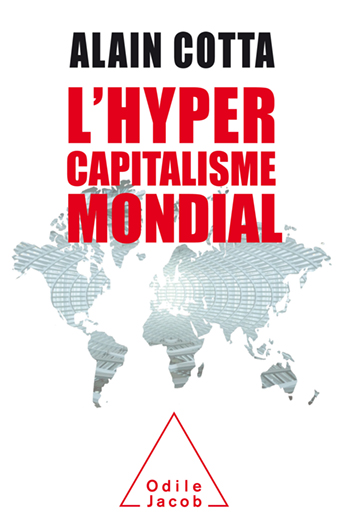
Alain Cotta
Global Hypercapitalism
Erudite and original, this book presents a true portrait of the “Dynamics of hypercapitalism,” tracing its lines of strength. It is also a denunciation of the elites and of their oligarchical power, exercised on the middle classes.
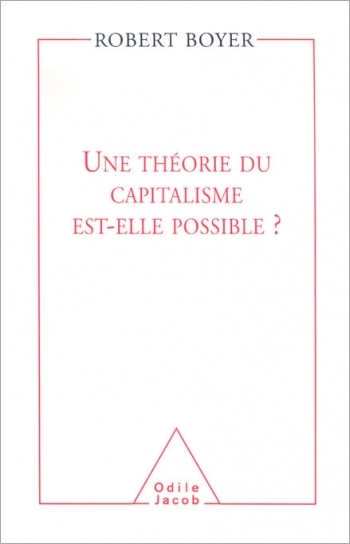
Robert Boyer
General Theory of Capitalism is it possible?
Robert Boyer is a leading figure of the regulationist school of economics, which believes that capitalism requires external, political, monetary and social regulations, and that the capitalist economy cannot be reduced to the self-regulating laws of the market. In this book, he proposes a general theory of capitalism, from two angles. First of all, he argues that there are several models of capitalism - not just one. America's ultra-liberal capitalism is unlike German capitalism, which is characterised by the fusion between banks and businesses, just as it is unlike French state-interventionist capitalism and Japan's capitalism of consensus. Secondly, in order to understand how capitalism works, every aspect has to be considered - not just the market but also political and social institutions (the State, central banks, unions, etc.) and the conventions they create among themselves (salary agreements, etc.). Robert Boyer is a research fellow at the Centre National de la Recherche Scientifique, a director of studies at the Ecole des Haute Etudes en Sciences Sociales and a member of the French prime minister's Council for Economic Analysis.
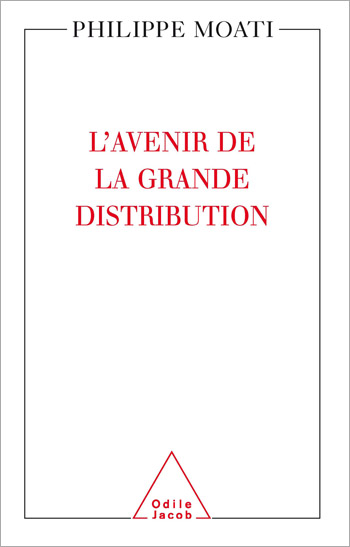
Philippe Moati
The Future of Large-Scale Distribution
Few phenomena have changed our urban centres as much as the birth of large-scale distribution: our towns ans cities have been transformed, as have our methods of purchasing, and even our places of social interaction have moved. This is perhaps only the beginning. In this book, Philippe Moati reviews the development of large-scale distribution during the three decades of prosperity that followed World War II and the economic crisis that succeeded them. He analyses the problems encountered by large-scale distribution today and examines the development strategies that are currently being put into practice and the revolutions which are perhaps to come. Philippe Moati teaches economics at the University of Paris-VII and is a director of research at CREDOC.
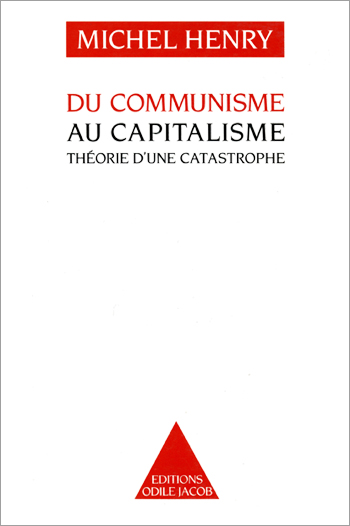
Michel Henry
From Communism to Capitalism : A Theory of Disaster
Communist totalitarianism is breaking apart because it rejected reality in favour of abstractions and falsely universal principles. Those who now rush West from Prague or Bucarest cannot imagine what awaits them: the levelling of values and individuality. M. Henry s work is a meditation against everything which undermines these disoriented refugees, whether it be spiritual starvation, creative thirst, or physical hunger.
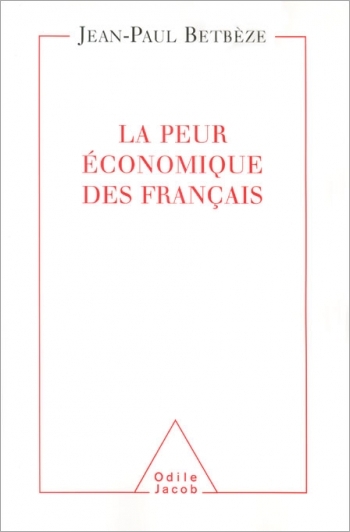
Jean-Paul Betbèze
French people's economic fear
France has economic possibilities, but it remains blocked in several areas. Although the country's leaders are aware of this, they seem unable to make the necessary reforms to move forward. France seems to be the prey of fears that paralyse it, but which have benefited a new class of economic as well as social rentiers who constitute a powerful economic, ideological and political group. These new rentiers are fully cognisant that the defence of their acquired privileges is not a practical long-term solution - as has been shown by rising deficits, decreased competitiveness and job losses. The author argues that it is necessary to make changes and implement reforms - and to do so it is essential to understand and overcome existing fears. It cannot be expected that everything will be changed at once, but some initial efforts must be made. The single reform that will fix everything does not exist, he says, but this is hardly an excuse for refusing to make a start. In other countries, programmes for economic reform are being implemented. Yet France is only beginning to consider such reforms. The object of this book is to provide a greater understanding of the present situation, in the form of a how-to manual. A ruthless analysis of some of France's psychological blocks, apprehensions and economic fears, this book can be regarded as a sort of economic psychotherapy. In addition, the author provides a critique of the false solutions that hinder modernisation and proposes his own solutions for change and reform. Jean-Paul Betbèze is a professor of economics at the University of Paris Panthéon-Assas and a member of the French prime minister's Council for Economic Analysis. He is a consultant to the president and the C.E.O. of a major bank and the author of Les Dix Commandements de la finance, which was awarded the Risques-Les Echos Prize in 2004.
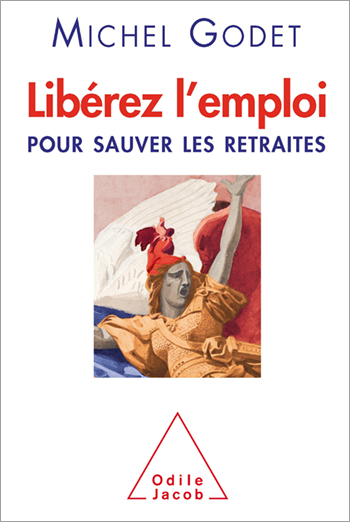
Michel Godet
Freeing the Job Market
Unemployment in France can be brought down to 5%. Michel Godet’s method shows how to ‘free the job market’
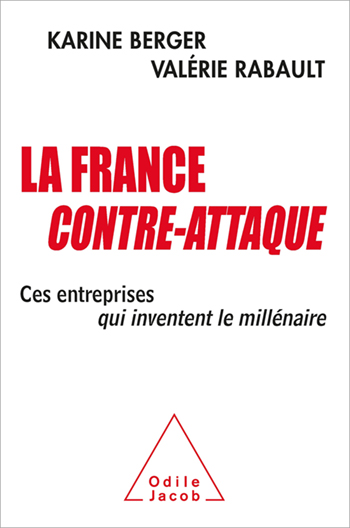
Karine Berger, Valérie Rabault
France Strikes Back For a More Competitive France
How can France recover its status as one of the world’s five most competitive nations?
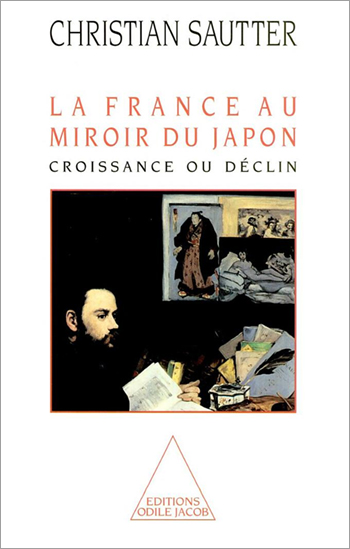
Christian Sautter
France Reflected in Japan Growth or Decline
Where does the formidable Japanese resistance to unemployment come from? How can their persistence be explained when Japan, like all developed countries, is faced with robotization, technological revolutions and, more recently, competition in the form of young populations in neighboring countries? This should give France pause for thought: as starkly contrasted as these two cultures may seem, France and Japan are sister countries. Thus reflected in the mirror of Japan, France can discover that its decline need not be fatal, and that it is up to France to break with a decrepit conservatism and embrace growth. Christian Sautter is the director of studies at the Ecole des hautes etudes en sciences sociales (EHESS).
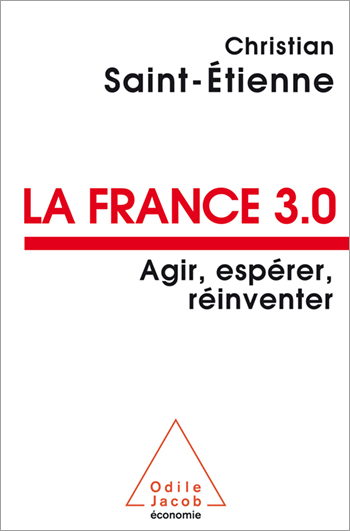
Christian Saint-Étienne
France 3.0 React, Renew, Reinvent
If French recovery is to succeed economic reforms must go hand-in-hand with political reforms
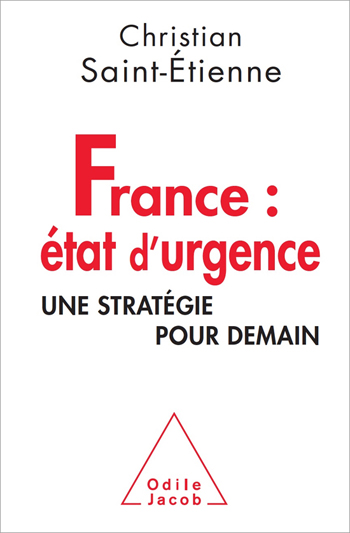
Christian Saint-Étienne
France : emergency A strategy for tomorrow
The Real Solution to Exit the Economic Crisis
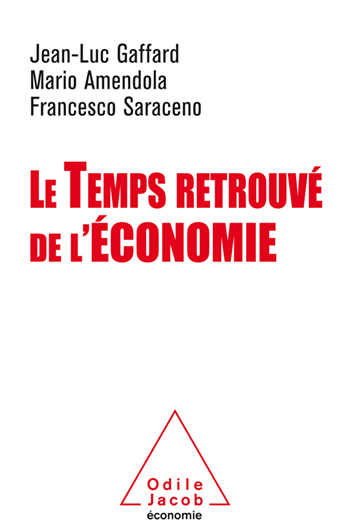
Jean-Luc Gaffard, Mario Amendola, Francesco Saraceno
The Forgotten Time in Economics
An innovative book that completely overhauls economic theory and proposes a more dynamic and more realistic view of entrepreneurs, finance, and possible action by governments.
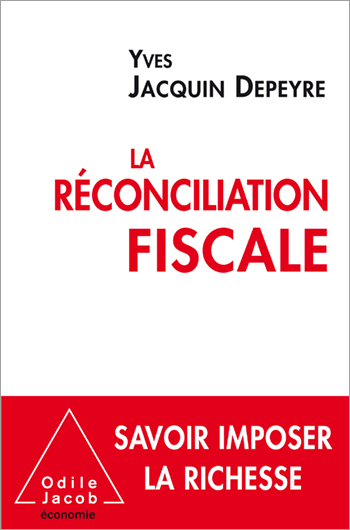
Yves Jacquin Depeyre
Fiscal Appeasement
The author urges the French to get rich and to become less hostile toward taxation
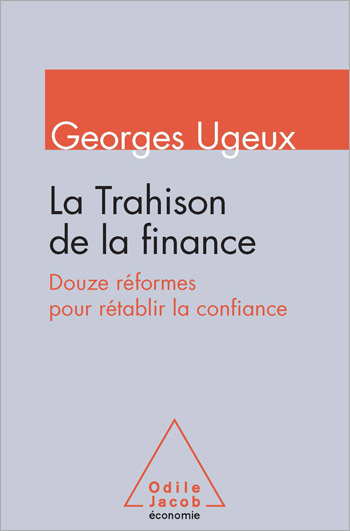
Georges Ugeux
Finance Under the Magnifying Glass Twelve Reforms to Restore Trust
Most analyses of the crisis and its aftermath are the work of theoreticians and ideologues

